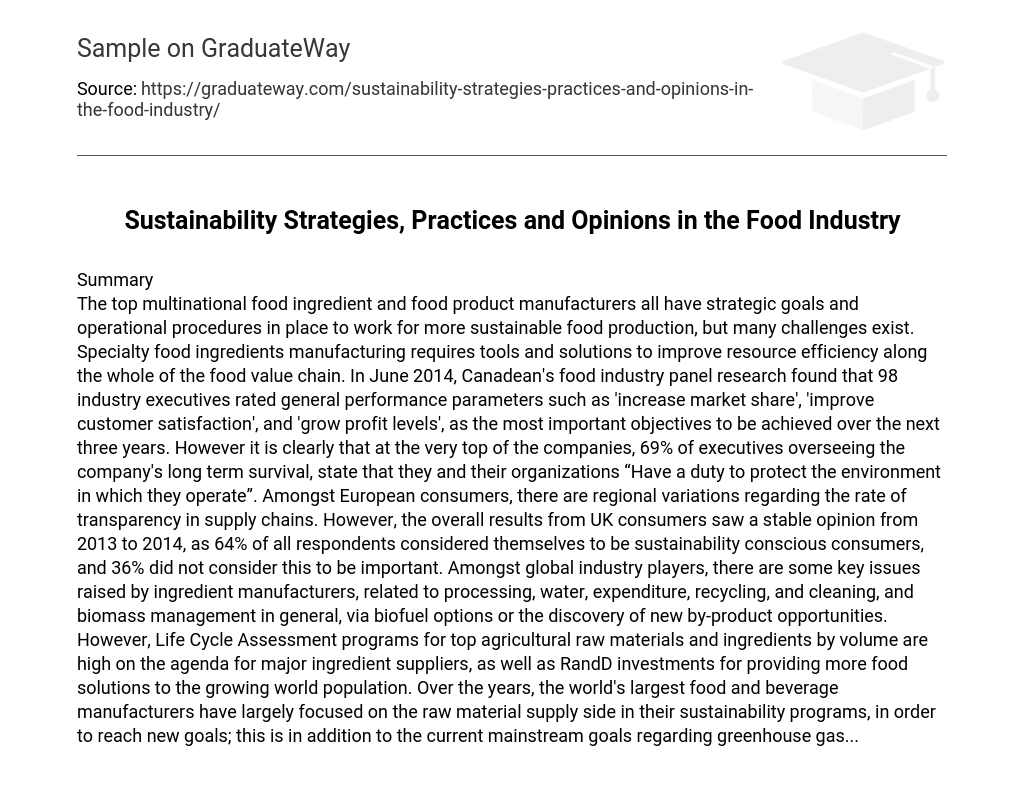The top multinational food ingredient and food product manufacturers all have strategic goals and operational procedures in place to work for more sustainable food production, but many challenges exist. Specialty food ingredients manufacturing requires tools and solutions to improve resource efficiency along the whole of the food value chain. In June 2014, Canadean’s food industry panel research found that 98 industry executives rated general performance parameters such as ‘increase market share’, ‘improve customer satisfaction’, and ‘grow profit levels’, as the most important objectives to be achieved over the next three years. However it is clearly that at the very top of the companies, 69% of executives overseeing the company’s long the food industry term survival, state that they and their organizations “Have a duty to protect the environment in which they operate”. Amongst European consumers, there are regional variations regarding the rate of transparency in supply chains.
However, the overall results from UK consumers saw a stable opinion from 2013 to 2014, as 64% of all respondents considered themselves to be sustainability conscious consumers, and 36% did not consider this to be important. Amongst global industry players, there are some key issues raised by ingredient manufacturers, related to processing, water, expenditure, recycling, and cleaning, and biomass management in general, via biofuel options or the discovery of new by-product opportunities. However, Life Cycle Assessment programs for top agricultural raw materials and ingredients by volume are high on the agenda for major ingredient suppliers, as well as RandD investments for providing more food solutions to the growing world population. Over the years, the world’s largest food and beverage manufacturers have largely focused on the raw material supply side in their sustainability programs, in order to reach new goals; this is in addition to the current mainstream goals regarding greenhouse gas…





